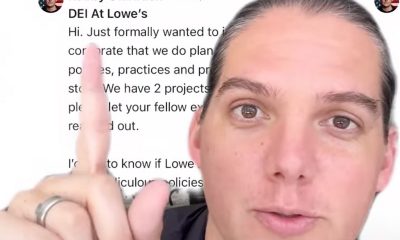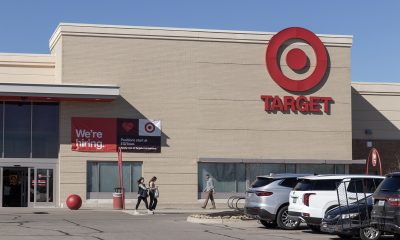Financial
Target enacts new political giving policies
Change follows 2010 election donation controversy
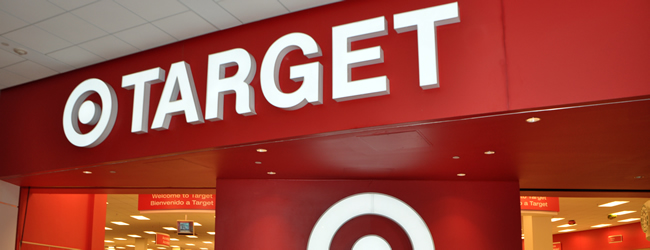
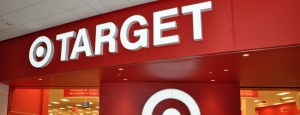
Target enacted new political giving policies following controversy over donations during the 2010 election (Washington Blade photo by Michael Key).
Target Corp. has made changes to its political giving policy following controversy over contributions the retail chain made to a conservative political action committee in the 2010 election.
Jessica Carlson, spokesperson for Target, said the change was enacted within the last month after the company’s corporate responsibility committee and board of directors conducted a review of policies regarding public policy engagement.
Among the new changes, which have been posted on Target’s web site, are establishing a policy committee made up of senior executives to guide decision-making for financial support of political activities.
“The policy committee and our CEO are responsible for balancing our business interests with any other considerations that may be important to our team members, our guests or other stakeholders,” Carlson said.
Carlson added the new policy committee will determine whether Target will make political contributions directly to candidates, political parties or to other groups such as 527 or 501(c)(4) committees.
Target attracted the ire of many LGBT rights supporters — some of whom pledged to boycott the company — after it was revealed last year that the retail chain donated $150,000 to MN Forward. The group ran ads backing Minnesota Republican gubernatorial candidate Tom Emmer, who opposes same-sex marriage.
Emmer narrowly lost the election to Gov. Mark Dayton (D), who supports marriage rights for gay couples, but the advancement of marriage legislation is unlikely now that Republicans have taken control of the legislature.
Carlson said Target changed its political giving policy because the company realized there was an opportunity “to evolve” its practices.
“These changes are really reflective of that perspective that we gained over the 2010 election cycle,” Carlson said.
Asked whether Target’s contributions to MN Forward were a factor in this change, Carlson replied, “Well, this has been an evolution, and so based on just generally the 2010 election cycle, we made some changes.”
Carlson declined to comment on whether Target was working with outside groups to implement its change. One source familiar with the changes, who spoke on condition of anonymity, confirmed that Target consulted with some LGBT rights advocates on the change.
Carlson added Target has “a long history” of supporting the LGBT community through political giving, volunteerism and event sponsorship.
For example, Carlson said the retail chain donated to Project 515, a Minnesota LGBT group, and this year saw many team members volunteer at Creating Change, an LGBT rights conference hosted by the National Gay & Lesbian Task Force.
Additionally, Carlson said Target has supported Twin Cities Pride and intends to extend support to Pride events in San Francisco and Chicago.

Did you melt like the Wicked Witch of the West this week?
As summer temperatures rise, keeping your home or apartment cool during a heat wave can become both a comfort issue and a financial challenge. One of the most effective ways to keep a home cool is to prevent heat from entering in the first place. Sunlight streaming through windows can significantly raise indoor temperatures. Consider the following solutions:
• Close blinds or curtains during the hottest parts of the day. Blackout curtains or thermal drapes can reduce heat gain by up to 30%.
• Install reflective window films to block UV rays and reduce solar heat without sacrificing natural light.
• Use outdoor shading solutions such as awnings (yes, the ones you removed because they were “dated”) and shutters to limit direct sunlight.
Fans are a cost-effective way to circulate air and create a wind-chill effect that makes rooms feel cooler.
• Ceiling fans should rotate counterclockwise in the summer to push cool air down.
• Box fans or oscillating fans can be placed near windows to pull in cooler evening air or push hot air out.
• Create a cross-breeze by opening windows on opposite sides of your home and positioning fans to direct airflow through the space.
• For an extra cooling effect, place a bowl of ice or a frozen water bottle in front of a fan to circulate chilled air.
To optimize natural ventilation, open windows early in the morning or late in the evening when outdoor temperatures drop. This allows cooler air to flow in and helps ventilate heat that built up during the day.
Appliances and electronics generate a surprising amount of heat. To reduce indoor temperatures:
• Avoid using the oven or stove during the day; opt for no-cook meals, microwave cooking, or grilling outside.
• Run heat-producing appliances like dishwashers and clothes dryers in the early morning or late evening.
• Unplug electronics when not in use, as even standby power can add heat to your space.
• Switching to energy-efficient LED lightbulbs can also reduce ambient heat compared to incandescent lighting.
If you do use an air conditioner, maximize its effectiveness by:
• Setting it to a reasonable temperature—around 76–78°F when you’re home and higher when you’re away.
• Cleaning or replacing filters regularly to maintain airflow and efficiency.
• Sealing gaps around doors and windows to prevent cool air from escaping. (Didn’t we all have a parent who said, “Close the door. You’re letting all the cool out?”)
• Using a programmable thermostat to optimize cooling schedules and reduce energy use.
If it is not cost-prohibitive, adding insulation in attics and walls can greatly reduce heat transfer. Solar panels that reflect heat can also help, as well as offset the cost of their installation. Adding weatherstripping around doors and windows, sealing cracks, and using door sweeps can make a significant difference in keeping heat out and cool air in.
Natural and eco-conscious methods can also help cool your home.
• Snake plants, ferns, or rubber trees can improve air quality and slightly cool the air through transpiration.
• White or reflective roof paint can reduce roof temperatures significantly.
• Cooling mats or bedding can make sleeping more comfortable without cranking up the A/C.
For renters or those who can’t make permanent modifications, there are still plenty of ways to keep cool.
• Use portable fans and A/C units instead of built-in systems, making sure they are the correct size for your space.
• Removable window film or static cling tinting can reflect heat without violating your lease.
• Install tension rod curtains or temporary blackout panels instead of hardware-mounted window coverings.
• Add draft blockers and weatherstripping tape that can be applied and removed without damage.
• Cover floors with light-colored rugs to reflect heat rather than absorb it.
• If allowed, use temporary adhesive hooks to hang reflective materials or light-filtering fabrics over windows.
Even if your space is warm, you can still take steps to help your body stay cool.
• Wear light, breathable fabrics like cotton or linen.
• Stay hydrated and avoid caffeine or alcohol during peak heat hours.
• Take cool showers or use damp cloths on your neck and wrists to bring your body temperature down.
Keeping your home or apartment cool in the summer doesn’t have to be expensive or energy-intensive. With a few adjustments such as blocking sunlight, optimizing airflow, using fans effectively, and making renter-friendly upgrades, you can create a more comfortable indoor environment while keeping energy bills in check.
Valerie M. Blake is a licensed Associate Broker in D.C., Maryland, and Virginia with RLAH @properties. Call or text her at 202-246-8602, email her at DCHomeQuest.com, or follow her on Facebook at TheRealst8ofAffairs.
Real Estate
The world’s on fire and D.C. is on sale (sort of)
Prices are up, but then again, nothing makes sense anymore

ICE is disappearing people, revered government agencies are shuttering, and who knows if we’ll be in World War III next week? But can you believe prices in D.C. are actually still up 6.3% since last year? It doesn’t make sense, and perhaps that does make sense, because nothing seems to make any sense any more.
That said, there are some parts of our market that are truly suffering. The interest rates, which have been up, up, up for about four years now, are the ongoing rain on our market’s military parade. Combine that with 75,000 federal employees taking a buyout nationwide, and DOGE cuts eliminating around 40,000 federal jobs in the District (per estimates by the D.C. CFO), not to mention thousands of other job losses in non-governmental organizations due to funding and program cuts, and you’ve got a case of uncertainty, and downright unaffordability in the pool of otherwise would-be buyers.
This has had a marked impact on properties that starter-home buyers and low- to mid-level employees would otherwise buy, most notably condominium and cooperative apartment units. These properties have already slowed in our market thanks to the profound impact that higher interest rates have had on their monthly carrying costs—pair that with job insecurity, and a lot of condos are proving to be very difficult to sell indeed.
So how is the average sale price up in our market?
The increase is almost entirely due to the resounding strength of the single-family home market, especially in upper Northwest D.C., where it is still quite common to see bidding wars, even on properties pushing past the $3M mark. It seems that buyers in that echelon are less impacted by a few percentage points in the interest rate, and less concerned about their job security. Notably, those buyers are often married with children and have an absolute need for more space, must stay in the area due to one spouse’s job, or the kid’s friend group, regardless of whether the cost of owning is thousands of dollars more per month than it would have been in 2020 or 2021. The continued appreciation in these neighborhoods defies imagination.
So, what to do if you are not one of those lucky enough to be shopping for a $3M home? The short answer: wait. If you want more space, rent your current place out and learn the joys of being a landlord while someone else pays your mortgage. Need the equity from your current home to buy your next place? Get a home equity line of credit, or loan, and pull the equity out of your current place to buy the next one. Or—and I have never recommended this before in 21 years of being a Realtor—rent for a few years. Sure, I’d love to list and sell your condo so you can climb the real estate ladder, but it might just be a waste of time, money or both if you could just ride out this storm and sell in a DOGE-less future.
All this said, there are some condos that seem to be immune from this recent negative news. Anecdotally, it feels like it’s the truly special ones that do just fine no matter the market. Our recent listing in Capitol Hill had a view from every one of its 15 windows of the Supreme Court. Sold in five days with six offers. Another condo was on the top two floors of a townhouse and had the coolest black wood floors that gleamed like a grand piano. Sold in four days at full price.
So, all is not for naught if you have a condo or home in an area that people want to be in, with nice space, light, amenities and a certain je ne sais quois. And, as long as we have a democracy in a few years, my experience says our market will be back, stronger than ever, really soon.
David Bediz is a Realtor and mortgage loan broker for the Bediz Group LLC and Home Starts Here, LLC. Reach him at [email protected].
Real Estate
No Rose, your interest rate has nothing to do with how many likes you got on Hinge
Many factors help determine rates these days
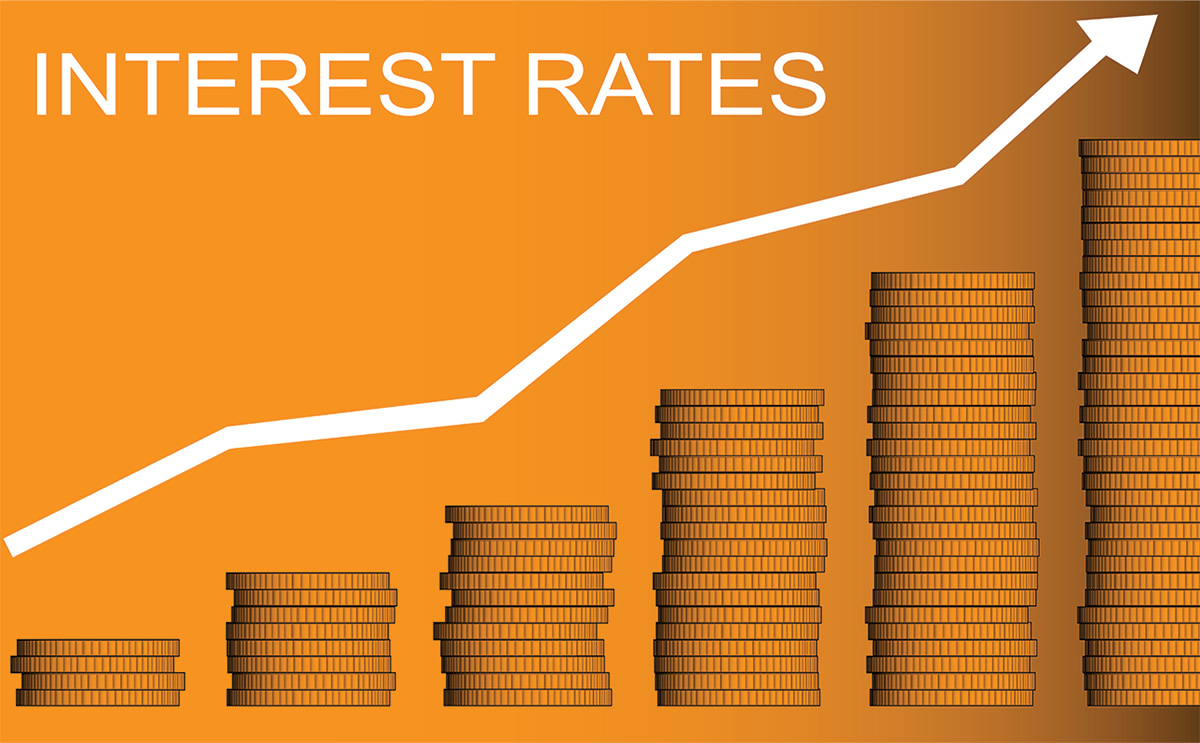
Picture it, you’re sitting in the lunchroom at work, and your coworker just bought a house. Another coworker bought one a few months ago and you hear that she got a totally different interest rate than the other one did, even though they both bought houses not that far from each other. Homebuyers everywhere have been wondering what interest rates they are going to get, lately. It’s easy to read an article online or see an ad on social media stating specific numbers, but there may be more than meets the eye going into a particular buyer’s interest rate.
What are the factors that can affect the interest rate a buyer eventually “locks in”?
- Property details – certain properties may be in neighborhoods with higher rates of foreclosure, or there may be specific census tracts that allow a buyer to participate in the “Fannie Mae Home Ready” and “Freddie Mac Home Possible” programs, which carry more flexible requirements such as various income limits and lower interest rates, to help people begin homeownership.
- Type of loan / loan amount– a conventional, conforming loan or a jumbo loan can have differing interest rates, as well as FHA loans.
- Credit score – most people are aware that this affects what interest rate is quoted, just like on a credit card. Some lenders will work with you on ways to improve a credit score if the goal is to buy six, nine, or 12 months from now.
- Lock period – do you want to lock in the rate for 30 days? 45? Market volatility can cause the rates to change so it will cost more money to hold onto a particular interest rate.
- Loan to value ratio – one can still buy a home with less than 20% down, but the rate that is quoted may be higher.
- Occupancy type – is this the primary residence or an investment property?
- Points bought or credits taken – A buyer can pay the lender a fee to buy down the interest rate, or the seller can sometimes offer a credit. This has become more popular in recent years.
- Market conditions – keep an eye on the news – as we are all aware, change is the only constant!
Lender Tina del Casale with Atlantic Union Bank says, “With jumbo fixed rates in the low 6’s, and first-time buyer down payment assistance loans such as DC Open Doors, rates are in the mid 7’s. With the added factors of your income, the address you are purchasing and your credit score factoring into the equation, interest rates are different from buyer to buyer these days. So, skip the online tools and make a few calls because that’s the only way to get an accurate quote these days!”
It might feel like an overwhelming amount of information to take on, but remember, there are people that help others take these big steps every day. A trusted lender and Realtor can guide their clients from start to finish when it comes to purchasing a home. And for that, you’ll be saying, “thank you for being a friend!”
Joseph Hudson is a referral agent with Metro Referrals. Reach him at 703-587-0597 or [email protected].
-

 U.S. Supreme Court4 days ago
U.S. Supreme Court4 days agoSupreme Court upholds ACA rule that makes PrEP, other preventative care free
-

 U.S. Supreme Court4 days ago
U.S. Supreme Court4 days agoSupreme Court rules parents must have option to opt children out of LGBTQ-specific lessons
-

 National5 days ago
National5 days agoEvan Wolfson on the 10-year legacy of marriage equality
-

 Congress5 days ago
Congress5 days agoSenate parliamentarian orders removal of gender-affirming care ban from GOP reconciliation bill

